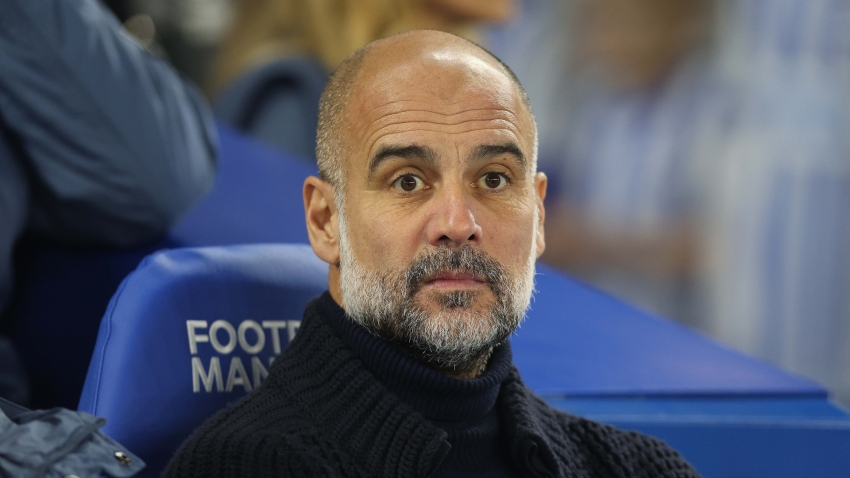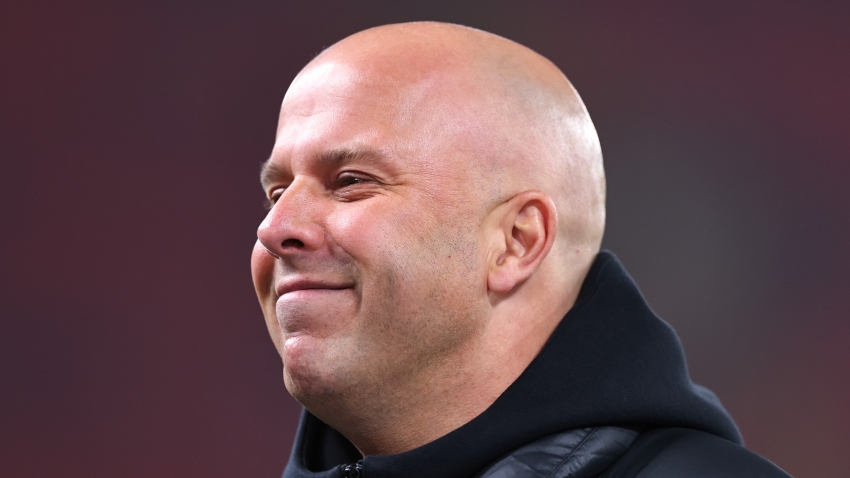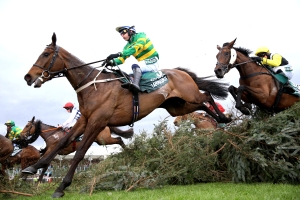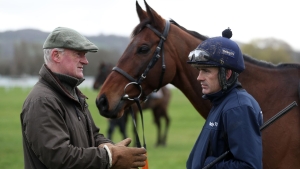“The National exactly as we want it” – that was the verdict of Jockey Club chief executive Nevin Truesdale after the first running of the Randox Grand National under new conditions.
A number of revisions were made to the famous four-and-a-quarter-mile chase this year, not least reducing the maximum field from 40 to 34 runners – although two late withdrawals meant 32 horses actually went to post for the earlier 4pm start.
The pre-race parade was altered to a canter in front of the stands, with a standing start implemented and the first fence moved closer to the off. The 11th fence was also reduced in height by two inches on the take-off side, with some ‘levelling off’ on the landing side to reduce the height of the drop.
The changes resulted in 21 finishers and no official fallers in the Aintree showpiece, although last year’s winner Corach Rambler did come down at the second fence when running loose after unshipping his rider at the first obstacle.
Truesdale said: “We’re absolutely delighted, the changes have clearly had a very positive impact. I think it was probably the cleanest National I’ve ever seen.
“You’ve got to go back to 1992 to find more finishers, so we’re really pleased. I think the standing start seemed to work and I thought the jockeys were very sensible and it was a very well-ridden race, great credit to all involved.
“It was a really exciting finish, the National exactly as we want it.”
Clerk of the course Sulekha Varma echoed Truesdale’s thoughts, although she is keen to see what impact moving the first fence closer to the start had on the speed at which the field met the initial obstacle.
She said: “Everybody is coming up to me saying what a good race to watch it was, it was exciting and there were so many horses still in contention and we had a fabulous winner.
“There’ll always be time for review and analysis, it’s not right now, but we do that every year. As it stands we are very pleased so all credit to the jockeys and to everybody involved in the race, it’s been great.
“A few people have said they thought the standing start worked well which is great, I need to find out what speed they got to going to the first. What a shame for Corach that he went at the first, but there’s been some great performances and they all came back safe and sound.”
Given the very wet winter and spring so far, there had been fears the going would be heavy on the National course. But after some drying weather, the race was eventually run on soft ground.
Varma added: “The ground hasn’t been bad, there were one or two doomsayers before we started. I bit my tongue and decided to wait to see how it rode, but overall I’m pleased.”
Critics of the changes felt the reduced field in particular would detract from the Aintree spectacle, but Rachael Blackmore, who won the race on Minella Times in 2021 and finished third this year on Minella Indo, did not feel the race lost any excitement.
She said: “I got a nice passage round and had plenty of space when I wanted it. It was still a fantastic race to ride in.”
Retired multiple champion jockey Sir Anthony McCoy said: “It was the most wonderful finish. I’ve never seen so many horses in with a chance of winning the Grand National so late in the race. What an incredible race – just a brilliant spectacle.”
Ruby Walsh, who won the Grand National twice, added: “If that doesn’t convince people that this is a wonderful sport then I don’t know what will.”





























